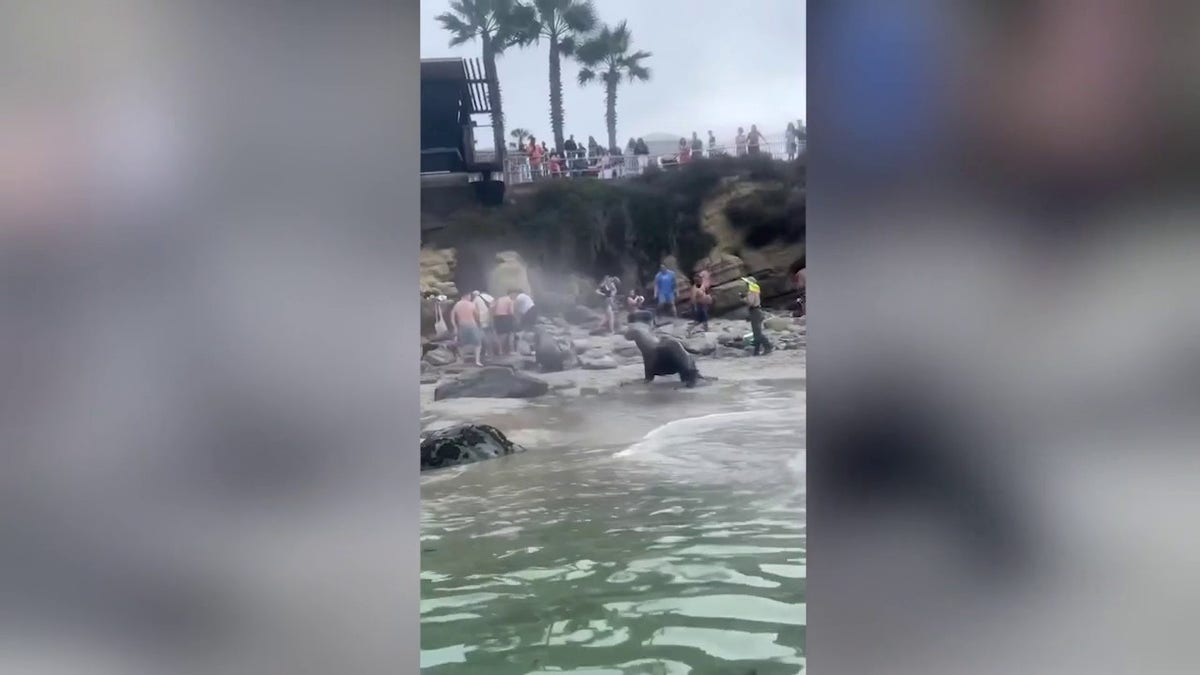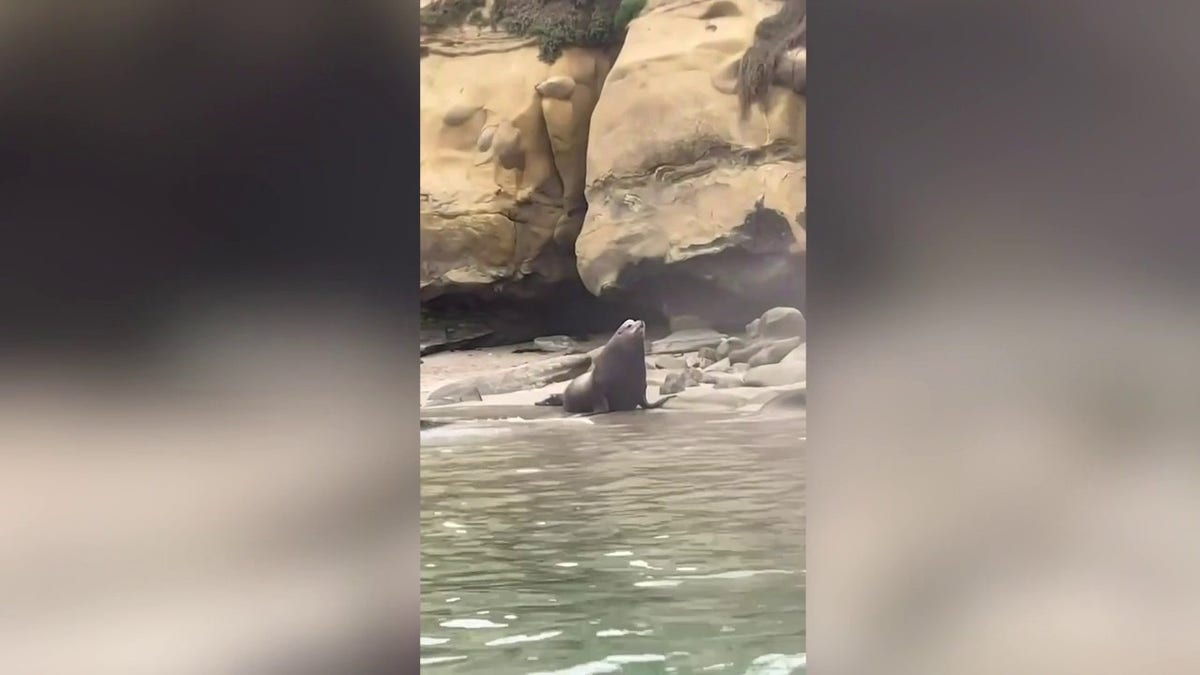California sea lions charge towards tourists at beach cove
People at La Jolla Cove in San Diego, California were startled after two agitated sea lions began barking and charging towards beachgoers. (@whoisjaphet / LOCAL NEWS X /TMX)
Beach goers at a cove in California made a run for it after two sea lions seemingly charged at people on the shore.
A video shared by Instagram user @whoisjaphet shows two sea lions taking over the beach amid summer crowds at rocky La Jolla Cove in San Diego, California, on Sunday, July 23.
"Please give that large, male sea lion plenty of room," a lifeguard can be heard saying over a loudspeaker. "They have bitten people, and they are protected animals."
After the lifeguard made the announcement, some cautious beach goers began to pack up and trudge up the rocky coastline. Others - trying to get close-up pictures of the sea lion - bided their time until the approximately 600 lb. aquatic mammal charged out of the water, towards people.

In a video shared by Instagram user @whoisjaphet, a sea lion is seen scattering a busy San Diego, California beach after it charged towards the shoreline. (@whoisjaphet / LOCAL NEWS X /TMX)
Another aggressive sea lion is seen launching out of the water, with surprising agility, and barking loudly - causing beach goers to shriek and quickly leave the cove.
FOOTAGE CAPTURES GROUP OF SHARKS SWIMMING JUST BELOW SURFERS AT CA BEACH
No beach goers were hurt in the incident.
San Diego posted multiple signs in the area last year that warn visitors not to approach sea lions at the cove.

Another sea lion is seen repeatedly barking at beach goers at La Jolla Cove in San Diego, California. (@whoisjaphet / LOCAL NEWS X /TMX)
Signs read "Stay back: Sea lion birthing area" and "Do not approach mothers or pups." Others, like the lifeguard, cautioned that sea lions can bite and that harassing them is against the law.
CLICK HERE TO GET THE FOX NEWS APP
Southern California’s beaches and coves may see an increase in sea lions from May through July as the animals enter breeding season, according to the Dolphin Research Center.












































